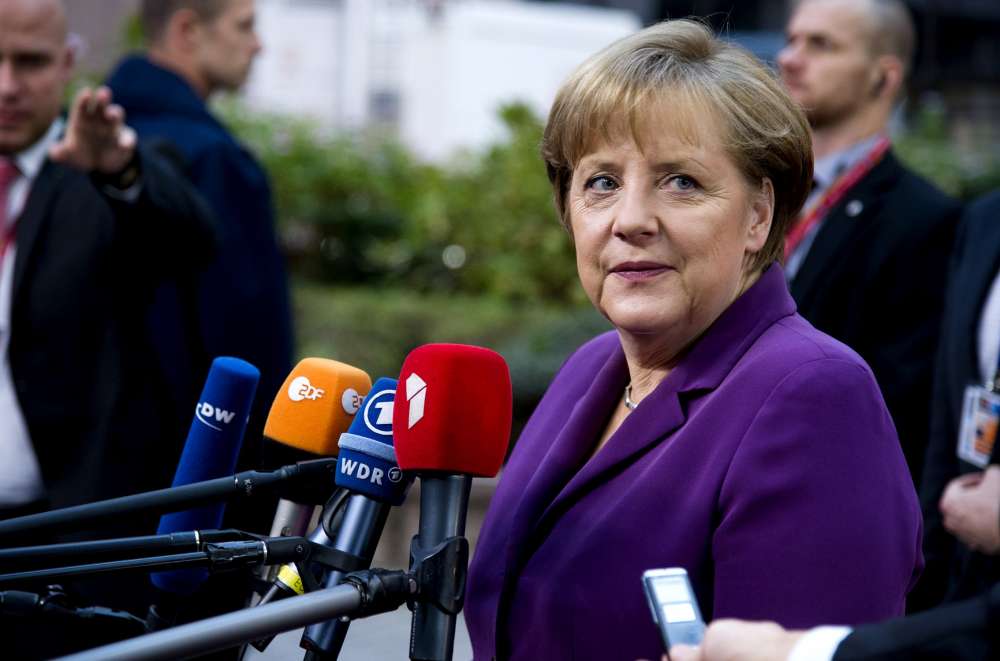Imagining a Post-Merkel Europe

“Political uncertainty has crossed the Rhine,” French academic and Emmanuel Macron adviser Jean Pisani-Ferry declared. The New York Times, which has put its bets on German Chancellor Angela Merkel as the new “leader of the free world”, warned that the collapse of coalition talks in Germany “portends a period of serious uncertainty for all Europe and the West”.
Indeed, Germany faces the challenge of coming to terms with a more fragmented landscape of political parties. But this is not necessarily all bad news for the rest of Europe.
This is hardly a big crisis
In the words of German President Frank-Walter Steinmeier, the current political limbo is “unprecedented” in post-war German history. Never before have coalition talks collapsed without a clear, alternative governing majority in sight.
But it’s important to not overdramatise the situation. This is not a full-fledged political crisis. Germany has an acting government that is working just fine for the time being. And political gravity may well pull the Social Democratic Party (SPD) into another coalition with Merkel’s Christian Democratic Union (CDU) without the uncertainty of new elections. Or Germany might experiment with a minority government that would be less stable, but not necessarily inherently unstable.
And this it not a constitutional crisis. On the contrary: it is the built-in, corrective mechanism against parliament dissolving itself and calling snap elections, and the strong role of the president in such a situation who is guiding the drawn-out negotiations. In many ways, the current limbo is the result of Germans electing a seven-party parliament that requires parties to move into untested and unfamiliar territory, in terms of coalition configurations across traditional ideological lines.
These new coalitions are already being tested at the subnational level. At the national level, they are naturally harder because more is at stake.
Then there is the added Merkel factor: During Merkel’s 12 year-reign, not a single coalition partner has emerged strengthened out of a coalition with the chancellor. So, small wonder that the pro-business Free Democratic Party (FDP) and the SPD are both traumatised by dramatic electoral defeats following an alliance with Merkel, and are very hesitant to enter another coalition with her.
But this will normalise again in a post-Merkel Germany. Medium-term German politics is likely to be more volatile, but without descending into an Italy-style, rapid succession of unstable governments.
The bigger danger is that the compromises necessary to form governing coalitions, in a more fragmented party system, will not lead to the necessary reforms that Germany needs to undertake, in the face of the digital transformation of its industrial base, competition from the US and China, as well as the demographic strain on its social systems.
In the short term, domestically, Merkel may well emerge stronger and be the “solid rock” to cling to in times of political uncertainty.
A Post-Merkel Europe
At the same time, the current situation gives the rest of Europe the opportunity to prepare for a post-Merkel Germany, which, in four years at the latest, is bound to become a reality. And while many foreign observers (especially those misty-eyed about Merkel’s power to lead the “free world”) have lacked the ability and willingness to imagine such a world, this must not all be bad news for the rest of Europe.
To be sure, Merkel’s experience and stature as a crisis manager would be a big loss. During the Ukraine crisis, her political standing and her ability to bridge the divide between anti-Putin and more accommodating forces within the EU were key to managing the situation. This allowed Europe to play a crucial role in the crisis.
But Merkel’s ability to mediate and broker compromises within the EU has been seriously compromised by her refugee policy stance, which has turned her into a red rag for many Eastern Europeans, and her orthodox eurozone policy, which has alienated many Southern Europeans.
In addition, with French President Emmanuel Macron, there is now a clear alternative political leader within the EU that can step in for Merkel. That is good news for Germany. The perception of German dominance, that is partly a result of Merkel’s longevity as the most experienced leader, has not done Germany much good. A recalibration towards joint leadership with France is good for everyone.
There is also little reason to think that Merkel’s departure will lead to very different foreign policy stances. The foreign policy priorities of a new German government are likely to be quite stable on the key issues of Brexit, European security, as well as dealing with US President Donald Trump and Russian President Vladimir Putin.
The biggest foreign policy mistake a new German government could make would be to close the door on Macron’s proposals for reforming the eurozone and the EU. In Germany, the only two parties clearly positioned against Macron’s eurozone proposals are the right-wing Alternative for Germany (AfD) and the FDP.
No other party wants to enter a coalition with the AfD. And given that the FDP triggered the collapse of the last coalition talks and is unlikely to be part of the next coalition, there is less chance of a new government opposing Macron.
That should be very good news for all those who care about the future of the eurozone and the European project. And all those panicking about a post-Merkel Germany and Europe should take a deep breath and think again.
…
This commentary was originally published by Al Jazeera on November 22, 2017.







